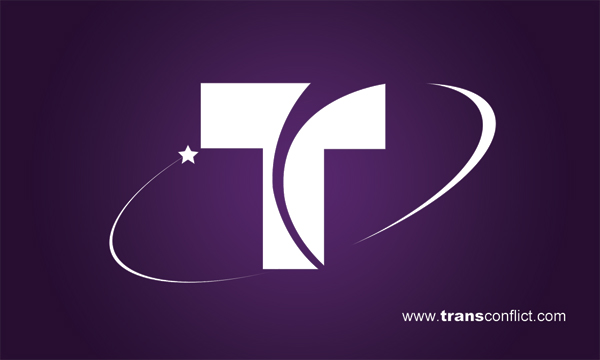Systemic peacebuilding, conflict transformation and post-war recovery and reconciliation
TransConflict is pleased to recommend the June 10-14th Advanced Certificate Programme (ACP) on Systemic Peacebuilding, Conflict Transformation and Post-War Recovery and Reconciliation (PCTR) delivered by the International Peace and Development Training Centre (IPDTC) of PATRIR.
What are the principles of conflict transformation?
Program Outline
The PCTR is one of the most advanced and well-known of IPDTC’s global advanced certificate programmes for policy makers, professionals and senior government officials.
Hosted at the IPDTC Global Academy the programme takes place over 5-days and provides intensive, rigorous training in the state of the art of peacebuilding, prevention and postwar recovery. Participants come from UN agencies, governments, and national and international organisations. Selection is rigorous and interested participants are encouraged to apply early.
Improving Quality, Effectiveness and Strategic Impact of Peacebuilding Policy and Practice
The PCTR has been acclaimed by policy makers and practitioners from the United Nations, national and international organizations and governments as one of the best programs of its kind in the world. For reviews of past participants please click here.
Bringing together experienced practitioners and policy makers from governments, the United Nations, regional organizations (EU, AU, OAS, ASEAN), and national and international organisations and agencies, the PCTR provides a unique opportunity to exchange experiences and practical learning together with those working in conflict situations world-wide. One of the best evaluated programs in the field internationally, the PCTR is unique in addressing all three phases of violence and war – before, during and after – based on rigorous professional training and practical operational experiences.
The PCTR is a five-day intensive program which provides experts, practitioners and policy makers with a forum for reflection and targeted, relevant professional development in a dynamic and stimulating environment. Given the issues it addresses, it is also relevant for those working in political, gender, security, human rights, development, and humanitarian fields, donors, and diplomats, working in areas affected or threatened by war and armed conflict or in post-war situations. The PCTR draws upon a global experience base, systematically weaving together key operational and policy lessons identified and good practices. The direct, needs-based, skills and knowledge intensive approach of the PCTR is relevant for senior and executive field staff and leadership in governments and organisations as well leadership, staff and field practitioners in national and international aid and development organisations. The program’s focus on practical experiences, skills which can be used in the field, and modules on systemic peacebuilding, making prevention work, conflict intelligence, peace consolidation and applied peacebuilding methodologies, have received strong feed-back from participants, both during the program and years later.
- Participants include: senior experts, field staff working in areas affected by violent conflict and war and in post-war situations, international diplomats, national and local level politicians in countries affected by war and conflict or with portfolios responsible for issues dealing with peacebuilding, conflict transformation, and development policies, policy makers, UN staff and heads of missions, people involved in grass-roots and community-based peacebuilding, and practitioners of conflict transformation and mediation.
- COTIPSO: The PCTR is implemented in affiliation with the Peace Operation Training Institute’s Certificate of Training in United Nations Peace Support Operations (COTIPSO).
The PCTR includes:
- Operational skills, lessons learned and best practices in peacebuilding, conflict transformation, and post-war stabilization, recovery and reconciliation;
- Case Studies and training in key skills, knowledge and methodologies addressing participants needs
- Tools for strategic planning and systemic peacebuilding, conflict transformation and post-war stabilization and recovery strategies and engagements
- In-depth operational guide to Conflict Analysis and Conflict Intelligence in peacebuilding and post-war stabilization and recovery
- Linkages with: gender; human rights; political, economic and social stabilization; security; disarmament, demobilization and reintegration; governance and democratization; development and nation and state-building
- Methods and strategies for organizations, governments and international institutions to improve and strengthen their support to peacebuilding, conflict transformation and post-war stabilization, recovery, and reconciliation
- Operational framework for strengthening sustainable national capacities and infrastructure for peace
The PCTR is highly intensive. Participating agencies, organisations and participants draw upon the operational methodology of the program to review strategies and engagements. Once selected, participants are provided with customized pre-training support which includes an evaluation and assessment to identify key issues participants wish to address and the results they wish to achieve.
Relevant, Operational, Practical
The PCTR offers participants an intensive, stimulating and challenging environment with experienced practitioners and policy makers from the UN, governments, and national and international agencies and organizations. This allows participants to learn together with practitioners from multiple conflict contexts, agencies, and levels of operation and engagement. Staff of the International Peace and Development Training Centre (IPDTC) and PATRIR’s Department of Peace Operations provide tailored support to assist participants in enhancing in-depth knowledge, applied peacebuilding skills and customized approaches relevant for their needs and contexts. Bridging the fields of theory and practice, the PCTR is highly effective for those working in on-going peacebuilding and post-war stabilization and recovery missions, policy makers, and deployable civilian and military experts.




















Systemic peacebuilding, conflict transformation and post-war recovery and reconciliation -… http://t.co/bD8urKnc4t #peacebuilding
Systemic peacebuilding, conflict transformation and post-war recovery and reconciliation -… http://t.co/bD8urKnc4t #peacebuilding